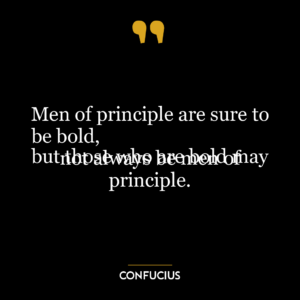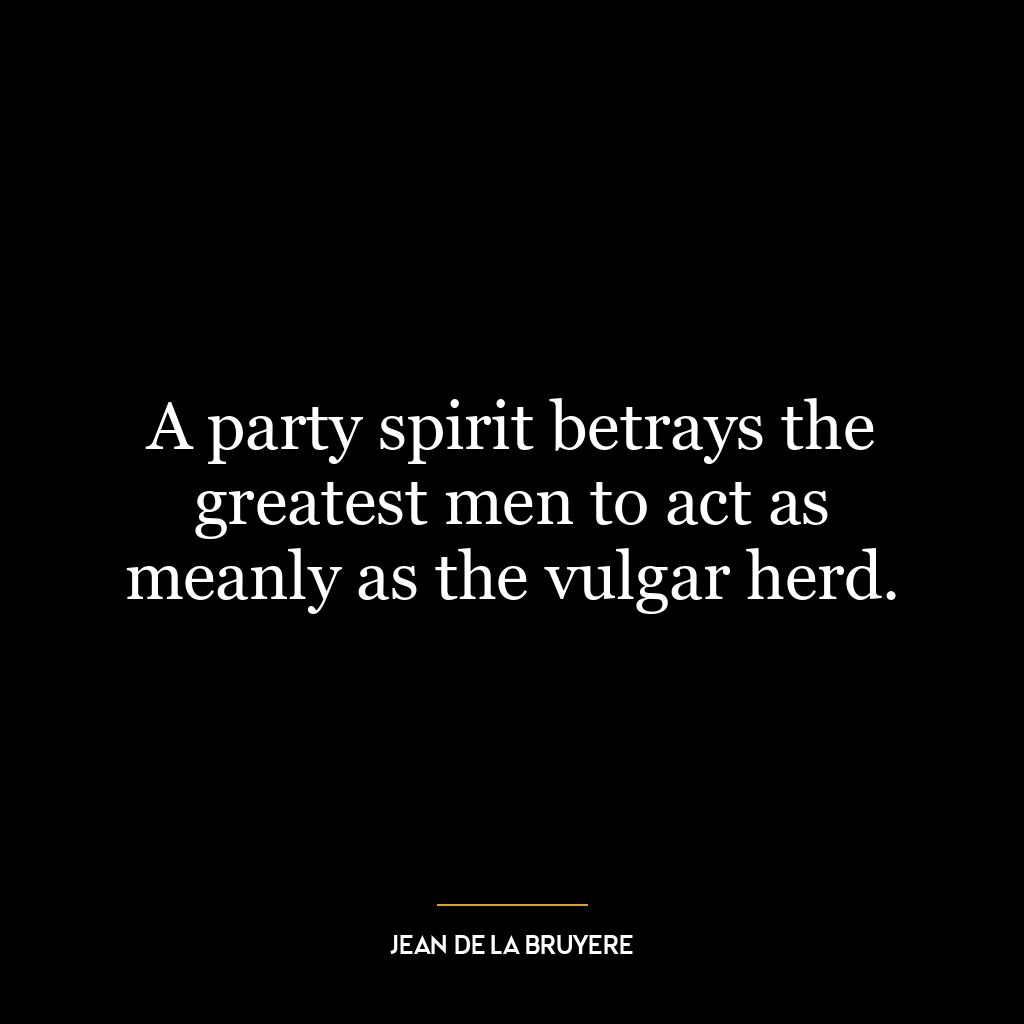The Superior Man is aware of Righteousness, the inferior man is aware of advantage.
This quote highlights the distinction between two types of individuals based on their moral inclinations and motivations. The ”Superior Man”, according to Confucius, is one who recognizes and acts out of righteousness, a moral compass that guides him to do what is ethically right and just. He is driven by principles, values, and a sense of duty. His actions are not influenced by personal gain or advantage but by an inherent understanding of what is morally correct.
On the other hand, the “inferior man” is one who is more aware of advantage, implying that his actions are primarily motivated by self-interest, personal gain, or benefit. His decisions are not based on a moral or ethical code, but rather on what will provide the most benefit to him. This could be in terms of wealth, power, or any other form of personal advantage.
Applying this idea to today’s world, we can see these two types of individuals in various sectors of society. In politics, for example, a superior man would be a leader who makes decisions based on what is best for his people or country, even if it means sacrificing personal popularity or gain. An inferior man, in contrast, would be a leader who makes decisions based on what will benefit him personally, such as consolidating power or increasing wealth.
In the realm of personal development, this quote suggests that to become a ‘superior’ individual, one should strive to be guided by righteousness and moral principles, rather than personal gain. This might involve making decisions that are ethically sound, even if they do not offer immediate or tangible benefits. It could also mean prioritizing the needs and well-being of others over one’s own personal desires or ambitions. This path, according to Confucius, leads to a more fulfilling and meaningful life.









